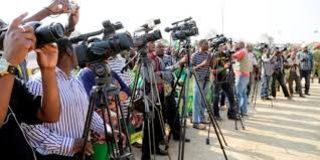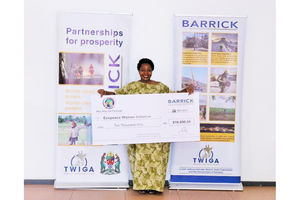A glimmer of hope for press freedom across the globe

When journalists face blatantly political trials under authoritarian regimes, very often the judge becomes a tool of the authorities. But last week that changed in Angola. Judge Josina Mussua Ferreira Falcão acquitted a prominent journalist and activist, Rafael Marques de Morais, of bogus charges of insulting the government.
Marques and an editor, Mariano Brás, in 2016 published an exposé of dubious land transactions by then-Attorney General João Maria de Sousa. The judge threw out the criminal charges against them.
“This court believes that we would be doing very bad as a society that wants to progress, if we punished the messengers of bad news,” she said. The judge added that the land sales were “tainted with irregularities” and the article fulfilled the journalists’ duty to inform the public. The victory was particularly important as a reaffirmation of the significance of independent Angolan journalism; Marques has spent nearly two decades uncovering corruption and malfeasance.
Sadly, Angola is an exception to global trends. The same day Marques was acquitted, six columnists for the once-popular, now-shuttered Turkish newspaper Zaman received sentences of up to 10½ years for “membership in a terrorist organization.” That’s how Turkish President Recep Tayyip Erodogan has labeled the movement of his onetime ally, exiled cleric Fethullah Gulen, whom he accuses of sponsoring a failed 2016 coup.
Turkey, which once enjoyed a vibrant and robust free press, has become a gulag for reporters under Erdogan. More than 150 journalists are in prison, and nearly 180 outlets have been closed. Three more newspapers and a television station were darkened on Monday.
Zaman columnist and novelist Ahmet Turan Alkan questioned the integrity of the justice system during a June hearing in Istanbul. “I suppose I must have irked and infuriated the government,” he said. “But do not expect me to apologize.” He added that he would not seek mercy from his oppressors: “I would not lick the knife that is cutting my throat.”
His defiance was echoed by two Reuters journalists in Myanmar, Wa Lone and Kyaw Soe Oo, who exposed the military’s massacre of Rohingya Muslims in a village and now face the government’s wrath. On Monday, a court lodged formal charges of violating the colonial-era Official Secrets Act against both journalists.
After the ruling, Wa Lone, in handcuffs as he was ushered into a police truck, protested that they had committed no crime. “We will not retreat, give up or be shaken by this,” he vowed. This noble steadfastness is just what Aung Sang Suu Kyi once showed the world in the face of a military dictatorship. Now that she is Myanmar’s de facto leader, she should free these gutsy and determined journalists.



